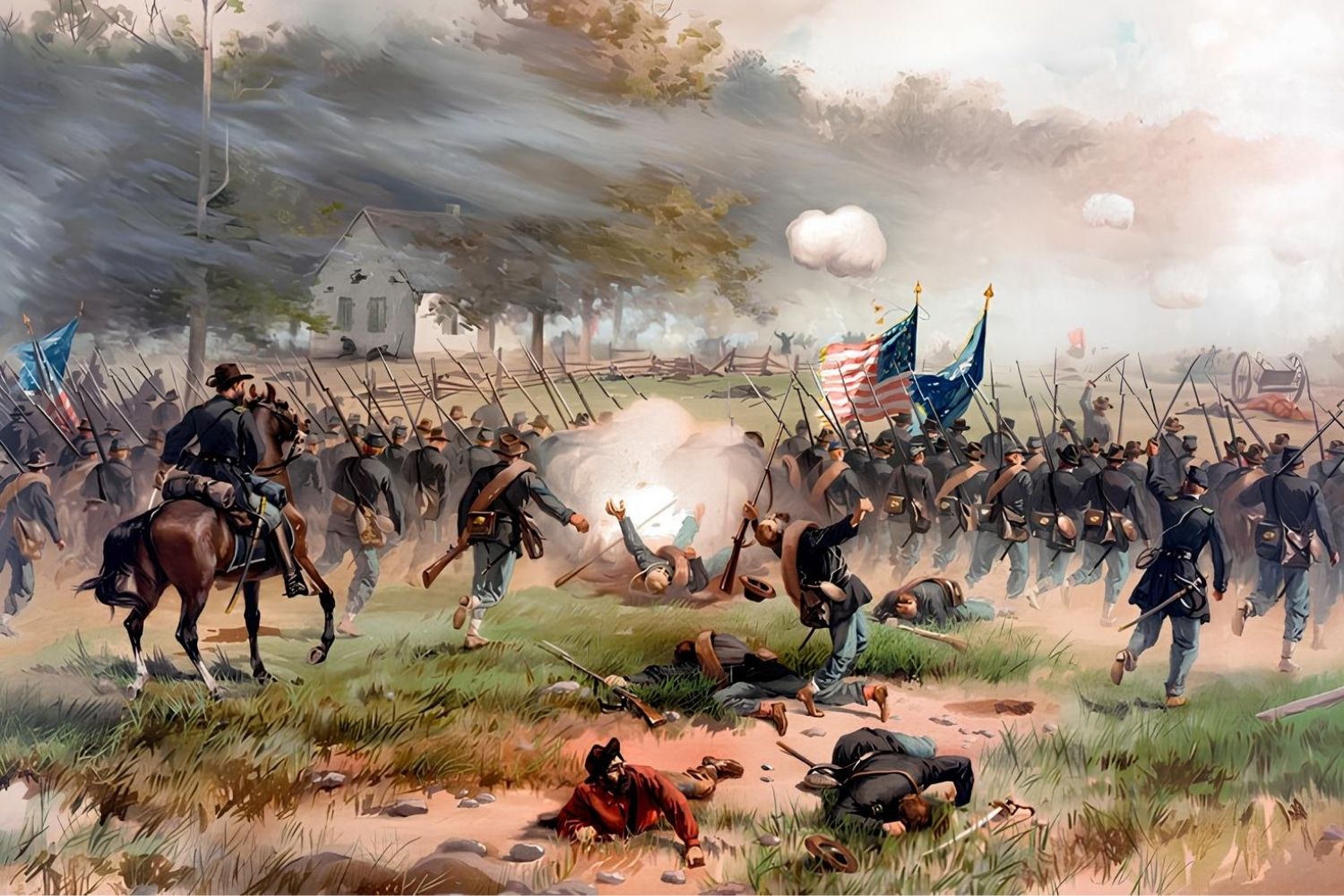
What sparked the Rebellion of the Lost? The Rebellion of the Lost began due to widespread discontent among the lower classes. High taxes, unfair laws, and corrupt officials fueled their anger. People felt oppressed and ignored by those in power. The final straw was a harsh winter that led to food shortages. Hungry and desperate, the people decided they had nothing left to lose. They organized and rose up against their rulers, demanding justice and equality. This rebellion wasn't just about food; it was about freedom and dignity. The Rebellion of the Lost became a symbol of the fight against injustice.
Key Takeaways:
- The Rebellion of the Lost began in 1789 due to economic hardship and a feeling of abandonment, leading to significant political reforms and inspiring other uprisings worldwide.
- The rebellion's impact on society and culture was profound, challenging social hierarchies, inspiring art and literature, and leaving a lasting legacy as a precursor to modern democratic movements.
Origins of the Rebellion
The Rebellion of the Lost is a fascinating chapter in history. Understanding its roots helps us grasp its significance.
- The Rebellion of the Lost began in 1789, sparked by widespread discontent among the lower classes.
- Economic hardship played a significant role, with food shortages and high taxes fueling anger.
- The movement was initially peaceful, with protests and petitions aimed at the ruling elite.
- The rebellion's name comes from the feeling of being "lost" or abandoned by those in power.
Key Figures in the Rebellion
Several individuals played pivotal roles in the Rebellion of the Lost. Their actions and decisions shaped the course of events.
- Johnathan Blake, a charismatic leader, emerged as the face of the rebellion.
- Maria Sanchez, a former noble, joined the cause and provided crucial strategic insights.
- Thomas Reed, a skilled orator, rallied support through powerful speeches.
- Eleanor Finch, a spy within the government, leaked vital information to the rebels.
Major Events and Battles
The Rebellion of the Lost saw numerous significant events and battles. Each played a crucial role in the movement's progression.
- The Storming of the Bastille in July 1789 marked the rebellion's first major victory.
- The Battle of Red Hill in 1790 was a turning point, with the rebels securing a strategic location.
- The Siege of Greyfort in 1791 lasted three months and tested the rebels' resilience.
- The Treaty of Unity in 1792 temporarily halted hostilities, though tensions remained high.
Impact on Society
The rebellion had far-reaching effects on society, altering the course of history in many ways.
- The Rebellion of the Lost led to significant political reforms, including the establishment of a more representative government.
- Social hierarchies were challenged, with greater emphasis on equality and justice.
- The movement inspired other uprisings around the world, spreading the ideals of freedom and democracy.
- Women's roles in society began to change, with many taking on leadership positions during the rebellion.
Cultural Influence
The Rebellion of the Lost left a lasting mark on culture, influencing art, literature, and more.
- Numerous songs and poems were written about the rebellion, capturing its spirit and struggles.
- Paintings depicting key moments and figures became popular, immortalizing the rebellion in art.
- The rebellion's themes of justice and equality influenced many subsequent literary works.
- Festivals and commemorations continue to celebrate the rebellion's legacy today.
Technological and Tactical Innovations
The rebellion saw the introduction of new technologies and tactics that changed the nature of conflict.
- The rebels used guerrilla warfare tactics, which proved highly effective against traditional armies.
- Innovations in communication, such as coded messages, helped the rebels coordinate their efforts.
- The use of propaganda played a crucial role in gaining public support for the rebellion.
- Advances in weaponry, including the development of more efficient firearms, gave the rebels an edge in battle.
Legacy and Modern Perception
The Rebellion of the Lost remains a significant historical event, with its legacy still felt today.
- The rebellion is often cited as a precursor to modern democratic movements.
- Historians continue to study the rebellion, uncovering new insights and perspectives.
- The rebellion's leaders are remembered as heroes, with monuments and memorials dedicated to their memory.
- The movement's ideals continue to inspire activists and reformers around the world.
Controversies and Debates
Despite its significance, the Rebellion of the Lost is not without controversy and debate.
- Some historians argue that the rebellion's impact has been overstated, questioning its long-term effects.
- Debates continue over the methods used by the rebels, with some viewing them as necessary, while others see them as too extreme.
Final Thoughts on Rebellion Of The Lost
Rebellion Of The Lost is a fascinating chapter in history. It showcases the power of unity and the human spirit. The rebels, despite facing numerous challenges, stood firm in their beliefs. Their actions left a lasting impact, shaping the course of events that followed. Understanding these facts helps us appreciate the complexities of their struggle. It also reminds us of the importance of standing up for what we believe in. History is filled with such stories, each offering valuable lessons. By learning about Rebellion Of The Lost, we gain insight into the resilience and determination of those who came before us. This knowledge not only enriches our understanding of the past but also inspires us to face our own challenges with courage and conviction.
Frequently Asked Questions
Was this page helpful?
Our commitment to delivering trustworthy and engaging content is at the heart of what we do. Each fact on our site is contributed by real users like you, bringing a wealth of diverse insights and information. To ensure the highest standards of accuracy and reliability, our dedicated editors meticulously review each submission. This process guarantees that the facts we share are not only fascinating but also credible. Trust in our commitment to quality and authenticity as you explore and learn with us.
